All Formats & Editions

Philosophical Dictionary (Penguin Classics)
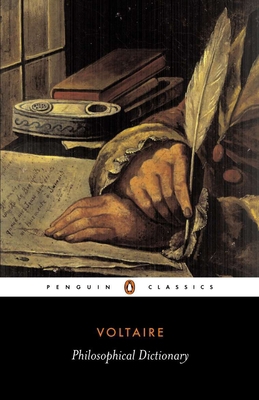
Philosophical Dictionary
Voltaire's Philosophical Dictionary first published in 1764 is a series of short radical essays - alphabetically arranged - that form a brilliant and bitter analysis of the social and religious conventions that then dominated eighteenth-century French thought. One of the masterpieces...

Voltaire's Philosophical Dictionary
This collection of literature attempts to compile many of the classic works that have stood the test of time and offer them at a reduced, affordable price, in an attractive volume so that everyone can enjoy them.

Voltaire's Philosophical Dictionary (A Compendium)
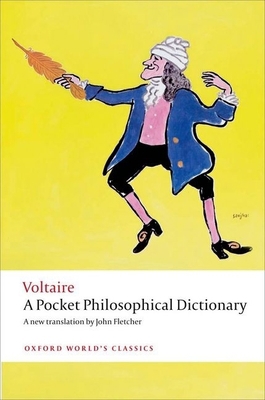
A Pocket Philosophical Dictionary
Here is the only available English translation of one of the landmarks of European Enlightenment thought, Voltaire's 1764 edition of A Pocket Philosophical Dictionary. Highly entertaining and still highly relevant, the "dictionary" actually consists of a sequence of short essays,...
![Dictionnaire philosophique [French] 2080700286 Book Cover](https://m.media-amazon.com/images/I/31UzSHwK8WL._SL500_.jpg)
Dictionnaire philosophique [French]

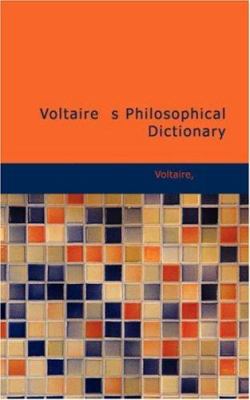
Voltaire's Philosophical Dictionary

Philosophical Dictionary Library of Essential R...

Philosophical dictionary
- Work introduced by an original analysis. The most useful books, like this "Philosophical dictionary" of Voltaire, are those of which readers themselves compose half; they extend the thoughts of which the germ is presented to them; they correct what seems defective to them,...
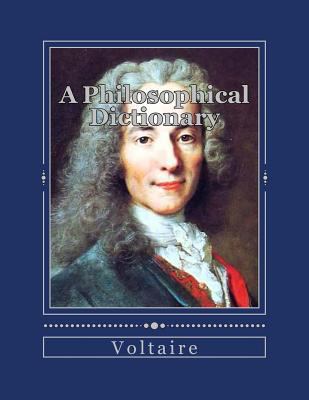
A Philosophical Dictionary
Fran ois-Marie Arouet, known by his nom de plume Voltaire, was a French Enlightenment writer, historian, and philosopher famous for his wit, his attacks on the established Catholic Church, and his advocacy of freedom of religion, freedom of expression, and separation of church...

![Dictionnaire philosophique [French] 1512011533 Book Cover](https://m.media-amazon.com/images/I/41ZqGND8YuL._SL500_.jpg)
Dictionnaire philosophique [French]
"Dictionnaire philosophique" de Voltaire. ?crivain et philosophe fran?ais, nom de plume de Fran?ois-Marie Arouet (1694-1778).

The Philosophical Dictionary
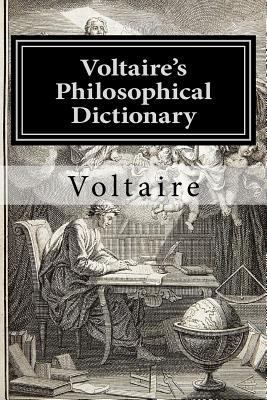
Voltaire's Philosophical Dictionary

The Philosophical Dictionary
The Philosophical Dictionary is a work by Voltaire now brought to you in this new edition of the timeless classic.

The Philosophical Dictionary for the Pocket
![Dictionnaire Philosophi [French] 2070386287 Book Cover](https://m.media-amazon.com/images/I/418DSbtPlEL._SL500_.jpg)
Dictionnaire Philosophi [French]
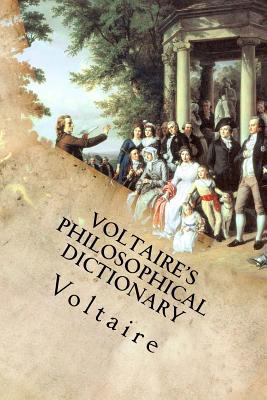
Voltaire's Philosophical Dictionary
The Dictionnaire philosophique (Philosophical Dictionary) is an encyclopedic dictionary published by Voltaire in 1764. The alphabetically arranged articles often criticize the Roman Catholic Church and other institutions. The first edition, released in June 1764, went by the...

Voltaire's Philosophical Dictionary
"Voltaire's Philosophical Dictionary" from Voltaire. French Enlightenment writer, historian and philosopher (1694-1778).
![Dictionnaire philosophique [French] 2081231506 Book Cover](https://i.thriftbooks.com/api/imagehandler/l/E22794AE313CBF578E184DD87BFE4823A3A51C8D.jpeg)
Dictionnaire philosophique [French]
![Dictionnaire philosophique, portatif. [French] 0274413086 Book Cover](https://i.thriftbooks.com/api/imagehandler/l/6074BADFFAD51030C3FB508D6CD17D531D667F16.jpeg)
Dictionnaire philosophique, portatif. [French]
The 18th century was a wealth of knowledge, exploration and rapidly growing technology and expanding record-keeping made possible by advances in the printing press. In its determination to preserve the century of revolution, Gale initiated a revolution of its own: digitization...
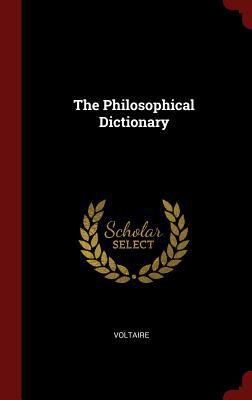
The Philosophical Dictionary

PHILOSOPHICAL DICTIONARY (TWO VOLUMES)












